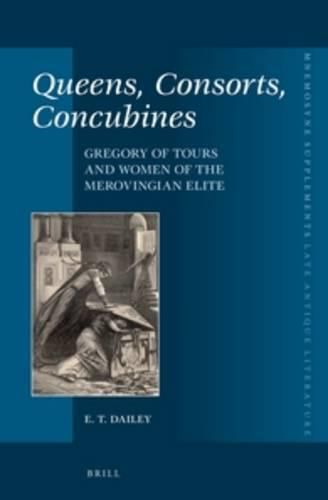Readings Newsletter
Become a Readings Member to make your shopping experience even easier.
Sign in or sign up for free!
You’re not far away from qualifying for FREE standard shipping within Australia
You’ve qualified for FREE standard shipping within Australia
The cart is loading…






Gregory of Tours hoped to inspire the believers in sixth-century Gaul with examples of righteous and wicked deeds and their consequences. Critiquing his own society, Gregory contrasted vengeful queens, rebellious nuns, and conniving witches with pious widows, humble abbesses, and tearful saints. By examining his thematic treatment of topics including widowhood, marriage, sanctity, authority, and political agency, Queens, Consorts, Concubines reassesses the material shaped by such concerns, including e.g. Gregory’s accounts of Brunhild, Fredegund, Radegund, and other important elite women, Merovingian political policies (marital alliances, ecclesiastical intrigue, even assassinations), and seemingly unrelated topics such as Hermenegild’s rebellion and the career of Empress Sophia. The result: a new interpretation of an important witness to the transformations of Late Antiquity.
$9.00 standard shipping within Australia
FREE standard shipping within Australia for orders over $100.00
Express & International shipping calculated at checkout
Gregory of Tours hoped to inspire the believers in sixth-century Gaul with examples of righteous and wicked deeds and their consequences. Critiquing his own society, Gregory contrasted vengeful queens, rebellious nuns, and conniving witches with pious widows, humble abbesses, and tearful saints. By examining his thematic treatment of topics including widowhood, marriage, sanctity, authority, and political agency, Queens, Consorts, Concubines reassesses the material shaped by such concerns, including e.g. Gregory’s accounts of Brunhild, Fredegund, Radegund, and other important elite women, Merovingian political policies (marital alliances, ecclesiastical intrigue, even assassinations), and seemingly unrelated topics such as Hermenegild’s rebellion and the career of Empress Sophia. The result: a new interpretation of an important witness to the transformations of Late Antiquity.